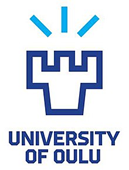
Cooperation
JustH2Transit engages in dialogue with industry, policy makers and the public. The project's interaction objectives fall into four categories: participation, information and awareness-raising, knowledge support and influence.
Continuous interaction with stakeholders will be ensured through a collaboration between the project researchers, the interaction officer, and the project coordinator, facilitating cross-disciplinary and cross-actor discussions.

Work packages for success
Review transition
and bottlenecks
-
The successful development of the hydrogen (H2) economy requires effective management of energy infrastructure and market
-
JustH2Transit aims to provide a
holistic view of the bottlenecks in
both energy infrastructure and the H2 economy, considering the capabilities of existing and planned technologies, infrastructure, and storage solutions to achieve flexibility, efficiency, and resilience. -
JustH2Transit will also explore
temporal energy management
through the use of both stationary and mobile storage solutions, considering sector-integrated requirements for electricity, hydrogen, heat, and high-value chemical production (HVCP).
Work Package 1:
Review of transition and bottlenecks
Lead: Jukka Lassila LUT,
Partners: Luke, UO, VTT
Analyze effects
-
Environmental impacts will be
assessed using different scenarios for the needed H2 production capacity and production technologies -
Production methods, national
production scenarios, and other
cost-related parameters are
included in Techno-economics
production routes evaluation. -
Social and cultural impact
assessment framework for H2
transition will be created -
The Multi-criteria analysis method will be used for combining the results from environmental, techno-economic and socio-cultural impact analyses.
-
Development of guidelines on
integrating the three aspects of
sustainability evaluation protocols
Work Package 2.
Analyze effects
Lead: Mika Horttanainen LUT, Partners: UO, VTT, Luke
Enable technologies
-
A successful systemic H2 transition requires addressing technology bottlenecks related to H2 production, transfer and storage, and utilization.
-
Materials technologies are crucial
enabling technologies, and the project's WP3 focuses on fundamental materials research to address these bottlenecks. -
Alternative energy-efficient H2
production methods such as direct solar hydrogen production (DSHP) and thermal catalytic decomposition (TCD) of biogas call for new breakthrough materials and process solutions, particularly photocatalysts based on abundant secondary raw materials.
Work Package 3.
Enable Technologies
Lead: Elina Huttunen-Saarivirta VTT,
Partners: UO, LUT
Prepare and benefit
-
The WP4 will provide provide
background information on
interdependencies between H2 and bio- and circular economy -
Facilitate the social acceptance of the H2 transit by addressing the role and contribution by each stakeholder group in the transition
-
Identify the systemic and
technological enablers and obstacles of emerging H2 transition. -
Study the dependencies of resilience in a complex socio-technical H2 transition process to ensure that resilience is one of the priority criteria in the direction forward
Work Package 4.
Prepare and benefit
Lead: Saija Rasi, LUKE,
Partners: LUT, VTT, UO
Interact, support, influence
-
WP5 is focused on interaction and shared responsibilities between Akordi and the consortium parties.
-
The goal of the interaction activities is to effectively engage with all relevant stakeholders, including industries, public sector, policy makers, academia, and the general public.
-
The purpose of engagement is to
include stakeholder perspectives in the research process, ensure
societal impact and legitimacy, and maximize the exploitation of
research results -
The interaction and support are
planned to reach stakeholder groups through a two-way dialogue manner.
Work Package 5.
Interact, support, influence
Lead: Minna Näsman, Akordi, Partners: All
Management and
coordination
-
WP6 aims to ensure a smooth workflow between the different WPs to ensure high scientific quality and societal impact.
-
The project agreement will establish rules and practices for data management and partnership.
-
An external Stakeholder Committee will be
established to ensure the relevance of project activities to society. -
International and external Scientific Advisory Board will ensure rationale of research directions and methodologies.
Work Package 6.
Management and coordination
Lead: Marko Huttula, UO
Coordinator: Henna Longi, UO






